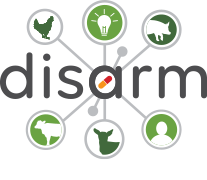The care of young dairy animals
Good husbandry practices are an important contributor to animal health on the farm. Young dairy animals that are cared for appropriately are in a better state to combat their ailments, thus reducing need for antibiotics. At the heart of all these challenges is the overall benefit of keeping calves feeling well. Newborn dairy animals must receive adequate colostrum, both quantity and quality. If colostrum is not available, an appropriate commercial colostrum substitute should be provided. First colostrum feeding is preferably as soon as possible or latest within six hours of birth. In situations when pre-weaned calves cannot suckle, they should receive liquid feed in a way that fulfils their need to suckle. Pre-weaned calves should not be weaned off liquid feeds until the rumen has developed sufficiently to allow it to accept solid foods. Weaned heifers should have access to balanced solid feed of good quality from an early age to promote good rumen development. Cud feeding may be a good alternative for the development of rumen physiology in weaned replacement heifers. All feeding equipment used for young animals should be thoroughly cleaned after use. Feeds and grassland/pasture use should be monitored to deliver appropriate quality and amount of feed to growing weaned replacement heifers. Water must always be accessible for pre-weaned calves.
